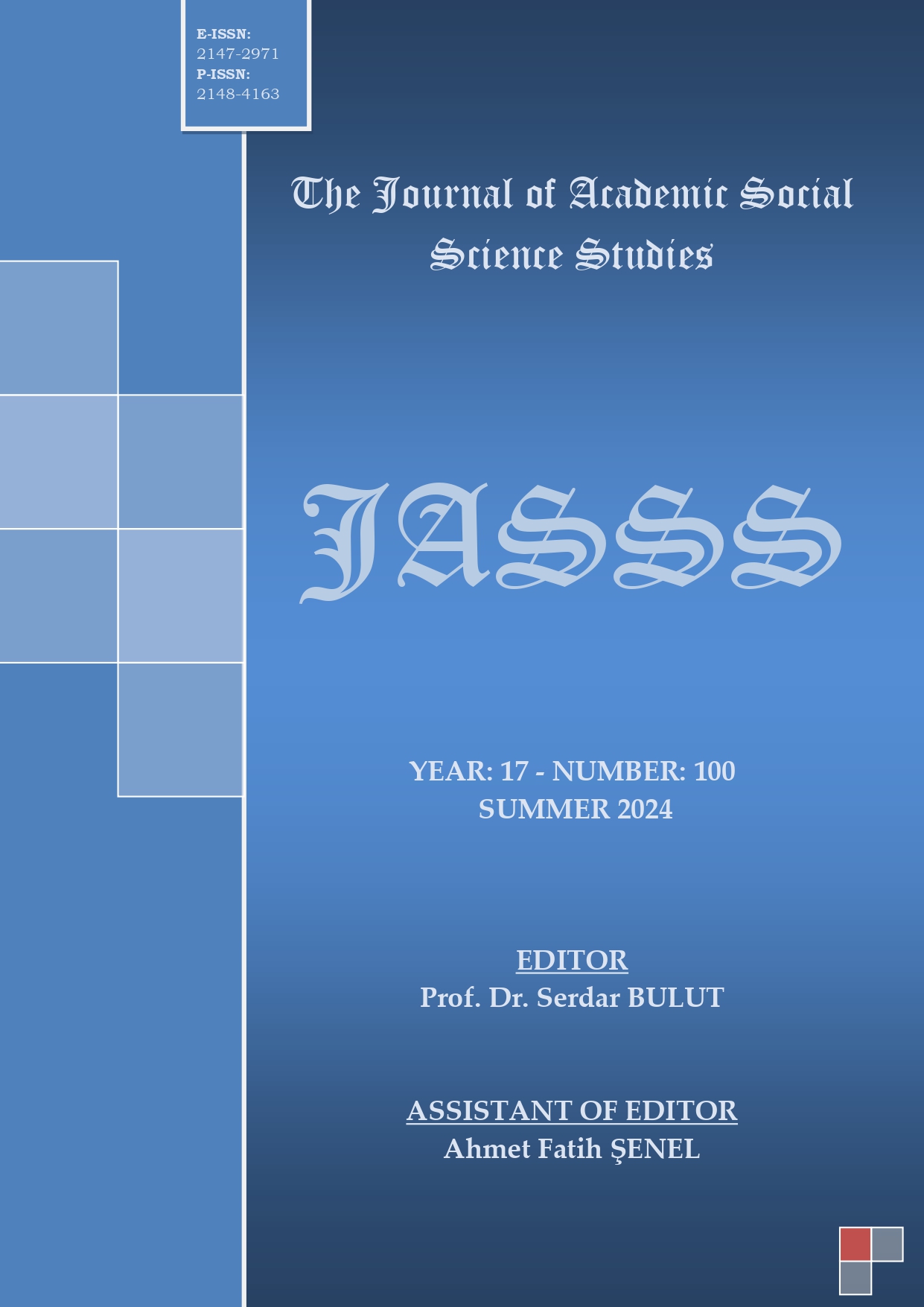2000 SONRASI TÜRK SİNEMASINDA KAFKAESK ETKİLER: KÜÇÜK KIYAMET (2004), KORKUYORUM ANNE (2009), GİŞE MEMURU (2010) VE KERR (2021) FİLMLERİNE YÖNELİK BİR ANALİZ
Author :
Abstract
Edebiyat ve sinema birbirinden beslenen, birbirlerini tamamlayan ve bu ilişki içerisinde çok yönlü birçok ürünün ortaya konulabilmesine olanak sağlayan iki sanat olarak ifade edilebilir. Öyle ki geçmişten günümüzü onlarca film edebiyat eserlerinden uyarlanırken, özellikle son senelerde bazı filmler roman ya da öykülere dönüşebilmektedir. Bu süreçte hem roman ve öykü yazarlarının güçlü bir etkisi söz konusudur hem de edebiyatla güçlü bağlar kurabilen yönetmen ve senaryo yazarlarının katkıları bu karşılıklı ve çok yönlü iletişime önemli katkılar sunmaktadır. Bu çok katmanlı ilişki içerisinde ünlü yazar Franz Kafka da önemli bir paydaya sahiptir. Kafka, eserlerinde yarattığı umutsuzluk, yabancılaşma, korku, belirsizlik, bürokrasi, keşmekeşlik ve grotesk imajlar aracılığıyla günümüz sinemasına da ciddi katkılarda bulunmuştur. Bu noktada, birçok yönetmenin filmlerinde Kafka’ya öykündüğü, dolayısıyla Kafkaesk izdüşümlerin sayısız filmde sinema iklimine yansıdığı görülmüştür. Kafka etkisinin Türk Sineması özelinde de birçok filmde yer aldığı ifade edilebilir. Bu bağlamda bu çalışmanın temel amacı 2000 sonrası Türk Sinemasında Kafkakesk uzantılara dair bir perspektif oluşturmaktır. Bu doğrultuda Küçük Kıyamet (2006), Korkuyorum Anne (2009), Gişe Memuru (2010) ve Kerr (2021) filmleri kasti örneklem yoluyla seçilmiş ve betimsel analiz yöntemiyle Kafkaesk olgular çerçevesinde belirli kategoriler dâhilinde ele alınmıştır. Sonuç olarak, geçmişten günümüze Türk Sinemasında birçok yönetmenin Kafka’dan etkilendiği görülmüş, seçilen örneklemler dâhilinde, 2000 sonrası Türk Sinemasında da bu durumun süregeldiği varsayımına ulaşılmıştır.
Keywords
Abstract
Literature and cinema can be defined as two arts that feed on each other, complement each other and enable the creation of many versatile products within this relationship. So much so that while dozens of films from the past to the present have been adapted from works of literature, especially in recent years, some films can turn into novels or stories. In this process, there is a strong influence of novel and story writers, and the contributions of directors and scriptwriters who can establish strong ties with literature make important contributions to this mutual and multifaceted communication. In this multi-layered relationship, the famous writer Franz Kafka also has an important share. Kafka has made significant contributions to today's cinema wi the despair, alienation, fear, uncertainty, bureaucracy, chaos and grotesque images he created in his works. At this point, it has been observed that many directors emulate Kafka in their films, thus Kafkaesque projections are reflected in the cinematic climate in countless films. It can be stated that the Kafka influence is also present in many films in Turkish Cinema. In this context, the main purpose of this study is to create a perspective on Kafkaesque extensions in post-2000 Turkish Cinema. Accordingly, the films Küçük Kıyamet (2006), Korkuyorum Anne (2009), Gişe Memuru (2010) and Kerr (2021) were selected through purposeful sampling method and analyzed within certain categories within the framework of Kafkaesque features through descriptive analysis method. As a result, it has been observed that many directors in Turkish Cinema from past to present have been influenced by Kafka, and within the selected samples, it has been assumed that this situation continues in post-2000 Turkish Cinema.





